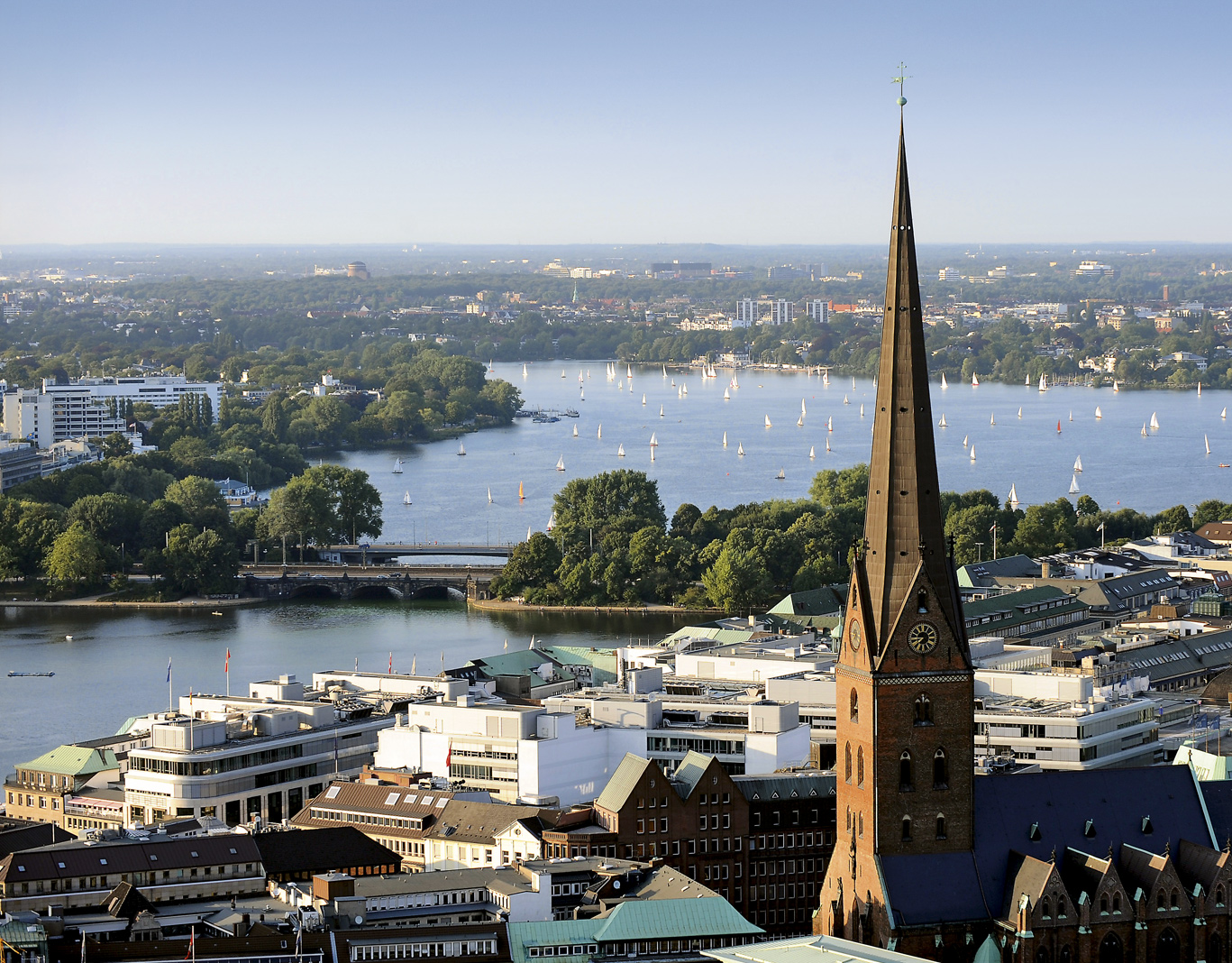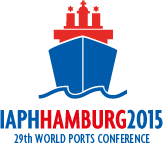Fit for Hamburg
Prepare for your visit in Hamburg! Be smart by using these expressions…
"Michel " - [ˈmɪçl̩]
The Michel is the landmark of Hamburg. Its official name is St Michaelis, and it is one of the five main churches whose spires shape the skyline of Hamburg. The Baroque church situated close to the port and Landungsbrücken [landing piers] is one of the most beautiful churches in North Germany. Its 132-metre-high copper-clad tower is most impressive when looked at while sitting on a boat travelling the River Elbe. As the church, which Hamburg’s residents affectionately call “Michel”, is very close to the Elbe, visitors who climb its tower will be rewarded with what is most likely the most stunning view of the city and its port.
"Plattdeutsch" - ['plʌt dɔɪ̯ʧ]
"Plattdeutsch" or Low German is a dialect mainly spoken in northern Germany. It was most widely used in the Middle Ages during the times of the Hanseatic League when it not only was the most important spoken language, but also the preferred written language of the merchants in their business correspondence. The term “platt” refers to the character of the language: easy to understand, straightforward and direct. Instead of Latin, the language of the scholars, the population used Plattdeutsch to communicate. Today Plattdeutsch is rarely spoken and if so, mostly in rural regions.
"Barkasse " - [baʁˈkasə]
The German term “Barkasse” comes from Italian (barcaccia = large boat) and was originally used to refer to the largest tender for a warship. Today the word “Barkasse” means a working boat, for example, to transport people. In the Port of Hamburg the 15 to 20-meter-long flat-bottomed boats are used regularly for port tours. Some 50 - 100 people can sit at tables inside and on the open deck to enjoy the panorama of the port. For tourists and locals alike the “Barkasse” tours are a much loved attraction, something for the visitors to the 29th IAPH World Ports Conference to look forward to.
"sabbeln " - [ˈsabl̩n]
“Sabbeln” means talking a lot and talking fast. It is similar to babbling, rambling or prattling on. The noun that goes with the verb “sabbeln” is “der Sabbel”. It refers to the mouth. If a person “sabbels”, (s)he risks being cut off with “Halt den Sabbel” - the equivalent to ‘shut up already’.
"Swutsch" - [svʊt͡ʃ]
If you want to go “Up’n Swutsch”, you will find excellent opportunities in Hamburg to do so: Be it a cosy dinner in the Portuguese Quarter, celebrating Happy Hour at one of the many cocktail bars or dancing at a club located along Reeperbahn – the options to enjoy yourself in the harbour metropolis are limitless. The term “Swutsch” derives from “Plattdeutsch”, a North German dialect. It originally referred to debauchery, immoral lifestyle. Today, North Germans use the term with a twinkle in their eyes when they go out at night, hit the bars and enjoy themselves.
"Labskaus" - ['Iɒbskaʊs]
Hamburg is most likely the only city in Germany where Labskaus is as popular on restaurant menus as it is. Although a classic Hamburg dish, it actually is a traditional seaman’s stew. Labskaus is a spicy purée made of finely chopped corned beef and mashed potatoes. Red beetroots, salted herring and dill pickles are served on the side, a fried egg is placed on top. Simple and delicious!
"Free and Hanseatic City of Hamburg" -
[fri ænd hænsɪˈætɪk sɪtɪ əv 'hæmbɜːɡ]
The terms “Free” and “Hanseatic City” have their origin in history. As early as the 17th century the Reichskammergericht [Imperial Chamber Court] declared Hamburg a “Freie Reichsstadt [Free Impe-rial City]”, which accorded Hamburg the status of Imperial Immediacy and made it free from the authority of any local lord. As a member of Deutscher Bund [German Confederation], Hamburg called itself “Free City” from 1815 onwards. Hamburg has considered itself a “Hanseatic City” since the 12th century. The Hanseatic League (or Hansa) was a political and economic alliance of mostly North German cities formed in the late Medieval Age. In the middle of the 17th century the Hanseatic League’s influence faded. Until today, Hamburgians are thought to have a certain Hanseatic mentality: a combination of open-mindedness, urbanity, uprightness, reliability, reticence and a keen commercial sense.
"Franzbrötchen" - [ˈfʀanʦˌbʀø:tçən]
Can be bought at any bakery in Hamburg – and we do mean ANY. The snail-shaped flaky pastry is traditionally baked with sugar and cinnamon. Where does the 'Franz' come from? Nobody knows for sure, but why bother? Better walk straight to a bakery around the corner and have a Franzbrötchen.
"Suutje" - [suːtjə]
People in Hamburg like to say that and then relax back into their seat. Suutje – pronounced: suudsche – means "slow down, take it easy!" In other words: take the stress out of your life - take it “suutje” more often in the New Year.
"Quite plietsch!" - [pliːʧ]
Hamburg residents like to use the word "plietsch". It refers to a person who is clever and astute. You have already guessed that the term derives from "Plattdeutsch", a North German dialect? You are quite plietsch indeed!
"Moin!" - [mɔɪn]
That's how people in Hamburg greet each other at any time of the day. The correct reply is "Moin Moin!". And "Tschüss" [tʃʏs] is Hamburg's version of goodbye. The word is indeed hard to pronounce, but it may sound harder than it is. Just give it a try!






